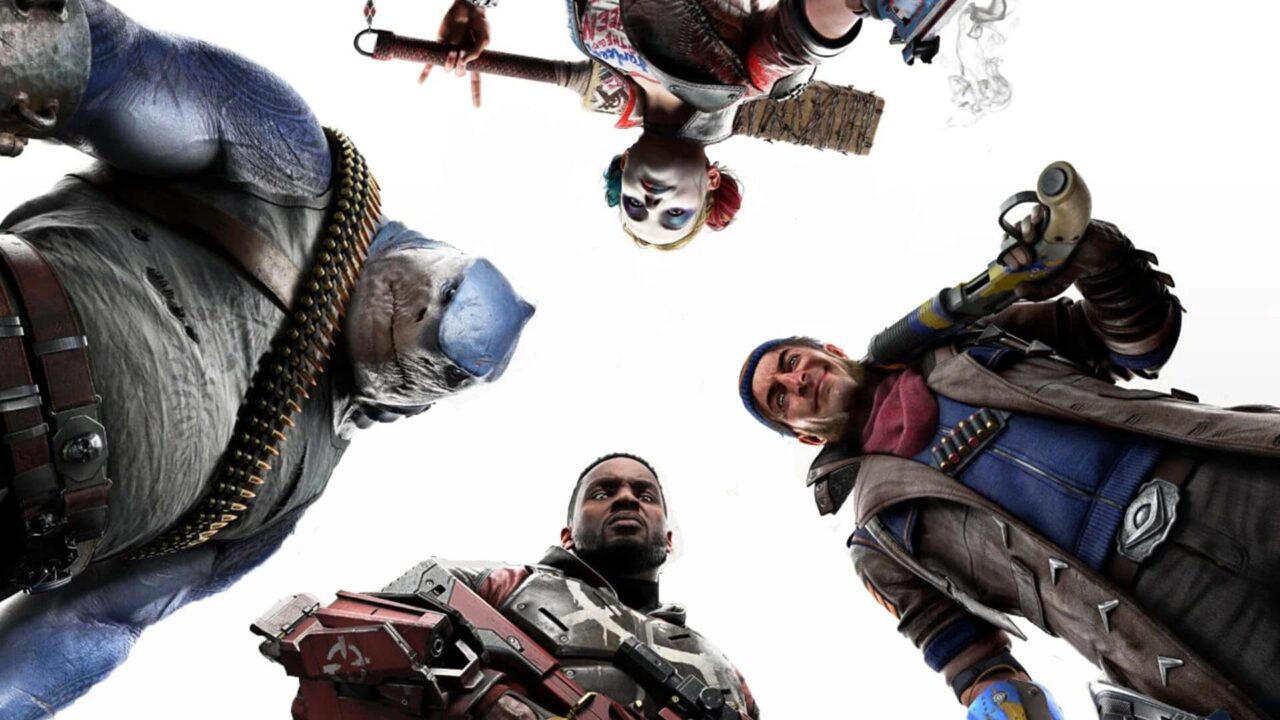Trending
Opinion: How will Project 2025 impact game developers?
The Heritage Foundation's manifesto for the possible next administration could do great harm to many, including large portions of the game development community.
Next to VFX, online games may be the one area where superheroes one area keeping tripping on their capes.

Superhero games have always been popular, and they’ve only become even moreso as superheroes themselves have spent the last 15 years dominating pop culture. But even with that continued success, there’s one area heroes haven’t been able to fully succeed: live service games.
During PlayStation’s recent State of Play livestream, Rocksteady released the first real information on its upcoming game, Suicide Squad: Kill the Justice League. Rocksteady has been vague on the game before now, and that in turn has made it tricky to really pin down what it was intended to be. But the stream confirmed what fairly recent leaks indicated: Suicide Squad will be a live service game with all that descriptor entails. Gear numbers, always online, and yes, even a battle pass.

DC’s Suicide Squad is a team of antiheroes and villains who perform government missions or get their heads blown off. On paper, they’re the type of team who would fit the live service model nearly every major publisher is chasing. Rocksteady even seems to be aware of this, as it’s already said that post-launch support will include even more characters to join the base roster of Harley Quinn, Deadshot, King Shark, and Captain Boomerang.
With all that said, there’s admittedly some exhaustion watching Harley Quinn, Deadshot, King Shark, and Captain Boomerang fuss about rarity and numbers. It isn’t just that some of this could’ve been avoided had Rocksteady been more upfront about this, but Suicide Squad comes burdened with the growing dislike for live service games on its back.
2023 hasn’t been kind to the live service space; in February alone, multiple live service games have announced their impending shutdowns. Some players dislike them for their monetization or gameplay mechanics, others for just how video game UI has been refitted with that type of game in mind. For Suicide Squad specifically, it has the added baggage of Marvel’s Avengers ending development later this year, and the mixed response to the semi-live service Gotham Knights.
By their nature, big name superheroes and multiplayer games go hand in hand. Netherrealm’s Injustice games have understood this quite well, as did Raven Software with X-Men Legends and the sequel series, Marvel Ultimate Alliance). But in the time that Suicide Squad has been conceived of and released, the superhero game genre had a curveball thrown its way when Marvel’s Spider-Man came out in 2018 and gave the cape space an adrenaline shot.

Insomniac Games’ take on Marvel’s classic hero wasn’t just well-received, it was a hit that led to Sony finally acquiring its longtime collaborator. Unburdened from being a tie-in game to a particular movie, Marvel’s Spider-Man blended together to stand on its own as a single-player game. In 2020, Insomniac repeated that success with Marvel’s Spider-Man: Miles Morales, and has both Spider-Man 2 and a Wolverine game in its immediate future.
At the same time, Eidos Montreal put out a cinematic game for the Guardians of the Galaxy. While it didn’t take off with audiences or publisher Square Enix at first, it’s since found a niche for itself and is considered a pretty good game in its own right. Marvel still has its live service or monetization offerings, but they exist mainly on mobile. In the console space, Marvel has let single-player thrive thanks to acclaimed cinematic fare like Marvel’s Guardians of the Galaxy and the Spider-Man games.
DC hasn’t given its games that opportunity quite just yet. After Rocksteady released Batman: Arkham Knight in 2015, the publisher’s big console offerings have focused on multiplayer, like the aforementioned Gotham Knights and Netherrealm’s Injustice 2. The only single-player game that’s currently known about is Monolith’s Wonder Woman game, but that may be years off. And it’s even more complicated when you consider that future DC games are intended to connect to the films in some interesting (and questionable) ways.
In the end, Suicide Squad: Kill the Justice League will likely be just fine and do its job in reminding audiences the DC antihero team exists. Maybe it’ll get by on its weird mix of characters and powers in the same way Marvel’s Avengers did. Even so, it does feel like it's arriving pretty late to a party that near everyone's started to clear out from.
You May Also Like